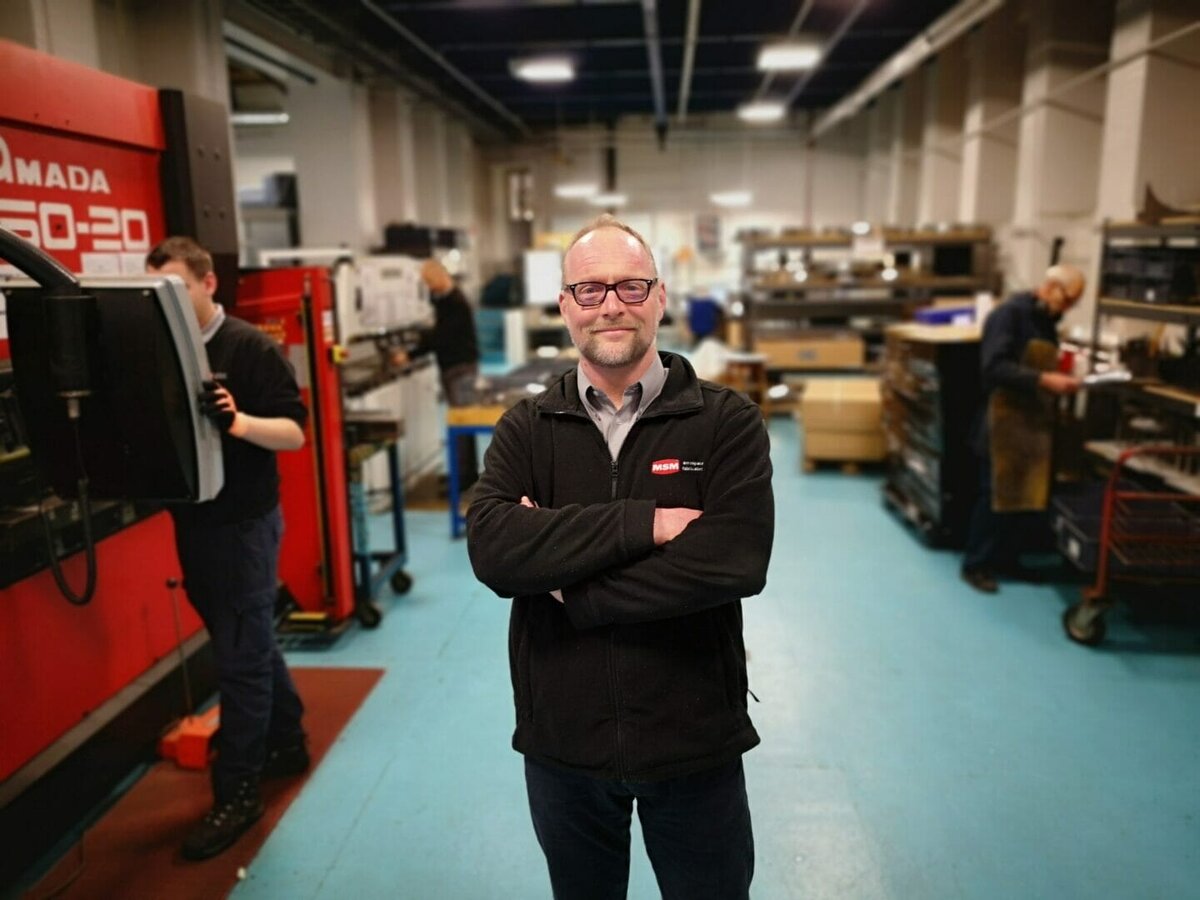12 months on and 62 North West makers are making things smarter
Almost 800 businesses have already approached the pilot for support
300 North West small and medium sized manufacturers have secured support, including specialised advice and £1.6M of funding, in the first year of the Made Smarter programme.
The Made Smarter North West pilot is working with SMEs to help them introduce digital tools and technologies to help boost productivity and growth.
This support for local manufacturing SMEs includes expert impartial advice and one-to-one support, digital roadmapping workshops to help manufacturers take their first steps to transform their business, eight-month leadership and management training programmes offered in partnership with Lancaster University, as well as funded three-month student placements.
62 of the businesses supported with impartial, specialist technology advice have also secured matched funding, and with this support forecast to deliver an additional £52M in gross value added (GVA) for the North West economy over the next three years.
SME applicants are developing projects involving the adoption of a range of industrial digital technologies, including Data Analytics, Artificial Intelligence (AI), Augmented Reality (AR), Industrial Internet of Things (IIoT), 3D-printing and robotics to solve business challenges across a range of manufacturing functions.
By adopting these cutting-edge technologies, these businesses benefit from improved productivity and revenue, increased exports and job creation, providing new skills to workforces, enhanced integration with supply chains and reduced environmental impact.
For example:
Engineering business Abbey Group, based in Liverpool, is projecting a 22% increase in turnover, a 41% increase in profit and is creating 30 new jobs, by 2022, investing in a real-time machine monitoring and an AI planning solution.
James Tanner Joinery, based in Kendal, will double its production capacity and profits after investing in an Industry 4.0-ready, five-axis CNC machine and software.
MSM aerospace fabricators in Manchester is predicting 20% growth after support from Made Smarter to adopt leading-edge Digital Twin technology that will redesign its new factory and unlock production and capacity planning in the future.
Michael Pedley, Managing Director of MSM aerospace fabricators, said: “The truth is that without Made Smarter support we wouldn’t have committed to such an advanced level of simulation. Our plan was always focussed on design as a discrete project. This extra investment means we get maximum value from the technology in the future. It also means that we could do it immediately rather than delaying – propelling us forward by years.”
Donna Edwards, Programme Director for the Made Smarter North West pilot, said: “Over the last year the Made Smarter team has engaged with hundreds of makers from every corner of the region.
“We have found a great enthusiasm about the benefits of adopting new digital technology tempered by uncertainty of how to go about it.
“It’s clear that the SMEs need the specialist advice and insight to help them select the right approach for their business, how much to invest and which technologies will bring the greatest benefits.
“This is exactly how Made Smarter can and is helping businesses across the region.
“Made Smarter is relevant for any North West SMEs employing less than 250 staff who make, create, manufacture or engineer. The interest we have received in the first year has been incredible. I urge local businesses to get in touch and find out how digital technology can transform their business.”
The £20M pilot programme was launched in November 2018, becoming operational in January 2019, and runs until March 2021.
The pilot will inform how best to support SME manufacturers in the adoption of new industrial digital technologies.
Andrea Thompson, chair of the Made Smarter Commission’s North West Pilot and BAE’s managing director for Europe & International Programmes, said: “We recognise that the move towards advanced technologies can be intimidating, which is why Made Smarter offers a raft of additional support to help manufacturers take that first step.
“This includes guidance on creating an effective digital roadmap to ensure the right technology is taking your business towards digitalisation, drive engagement between industry, universities and research institutes with the student placements programme, and a leadership training programme designed to identify the best digital tools and use them to make everyday improvements to business.”
During its first 12 months a series of successful events in Greater Manchester, Cheshire and Warrington, Lancashire, Cumbria and Liverpool have allowed Made Smarter’s team of expert advisers to connect with businesses operating in a wide-range of sectors including engineering, aerospace, food and beverage, agriculture, steel, chemicals and textiles.
The North West pilot is being overseen by the Made Smarter Commission – a partnership between the Department for Business, Energy & Industrial Strategy (BEIS) and industry leaders.
Juergen Maier, former CEO of Siemens and co-chair of the commission, said: “When we launched Made Smarter in November 2018 our ambition was to kick start a new industrial revolution for the manufacturing sector and turn the UK into a world leader in digital technologies.
“I am thrilled that so many manufacturers in the North West have grasped what I believe is a once in a generational opportunity to boost productivity, create high value and highly paid jobs of the future. Our task now is to scale this up and see what other regions can learn from the great work that’s already being done here.”








